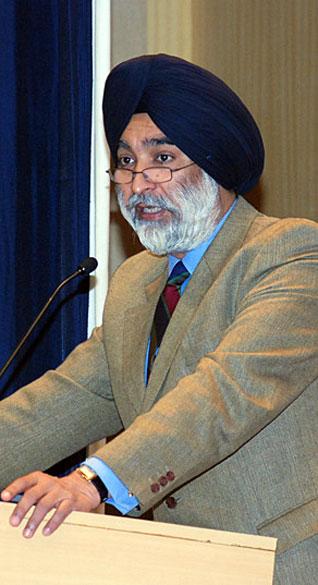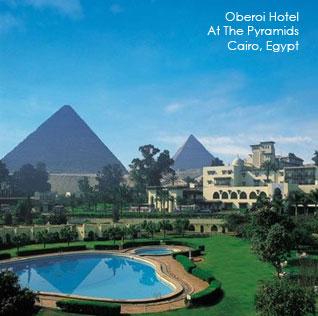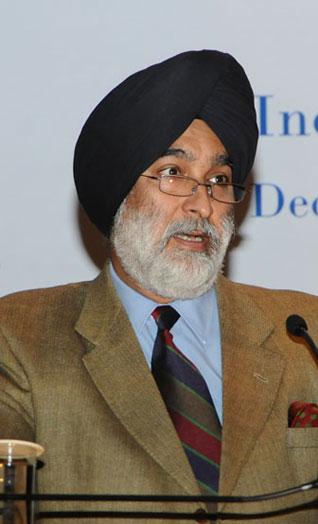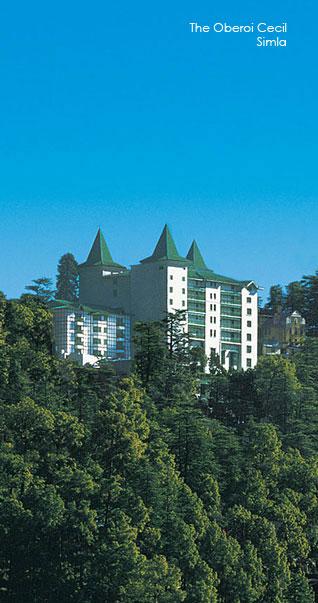People
Analjit Singh Buys into Oberoi
by BHUPESH BHANDARI
With his East India Hotels investment, Singh is able to fulfil an ambition to be associated with service excellence.
In April 1998, Analjit Singh had made a neat pile for himself - Rs 5.5 billion from the sale of 41 per cent in cellular services operator Hutchison Max. After hefty dividend and fat bonuses had been handed out, he got down to the all-important question of what to do with the money.
McKinsey was called in for advice. Various options were discussed. But nothing worked. Then a consultant gave Analjit Singh a piece of paper and a pen, and asked him to write his obituary in 800 words. In that moment, Analjit knew what he wanted to be known for - service excellence.
He would subsequently talk of two businessmen who had shown that it was possible to strive for service excellence: Naresh Goel of Jet Airways and the Oberois of East India Hotels. They were his idols.
Eleven years later, Analjit Singh is all set to become an equal business partner of the Oberois in East India Hotels. He will take 26 per cent in the company and will become its vice-chairman. The Oberois and Analjit Singh will together hold 52 per cent in East India Hotels. East India Hotels runs Oberoi hotels, several resorts (Vanyavilas, Rajvilas, etc.) and budget hotels under the Trident brand.
Analjit Singh will soon own over a quarter of them all.
In a way, he has also acted as a white knight for the Oberois - he has helped them thwart any attempt to take over the company. ITC, the cigarettes to paper, FMCG and hotel conglomerate, has close to 15 per cent in East India Hotels. The threat to the Oberois was real. For the moment, they have been saved by Analjit Singh.
Analjit, the chairman of Max India, is the third son of Ranbaxy founder Bhai Mohan Singh. The M in Max stands for his father (Mohan), A for Avtar Kaur (his mother) and X for all their.
Analjit started his career with Ranbaxy in 1981 when he made a lateral entry as Director - Projects in the all-powerful executive committee, though he was not a member of the board. He was immediately put in charge of Ranbaxy's upcoming penicillin project in Punjab. With minimal financial help from Ranbaxy and the family, he got the project going.
His next stop was Dove Corporation, which represented top liquor and fashion brands in India's duty-free shops. Once it began to generate profits, it started the business of importing electronic components. Then he set up his packaging films business. Around this time, the family split. Analjit and his older brother, Bhai Manjit Singh, complained that they were shortchanged in the trifurcation. The family jewels, they alleged, went all to their elder brother, Parvinder Singh.
Things worsened for Analjit after the split. Ranbaxy, which was the principal buyer of penicillin that Max made, decided to source it from elsewhere. The Gulf War drove the packaging films business into losses.
Meanwhile, Analjit realized that India was on the cusp of a telecommunication revolution. It tied up with Motorola for radio paging services in the country. Soon, he realized that he had made a mistake - he had tied up with an equipment manufacturer for a services business. Wiser, he tied up with Hutchison Whampoa of Hong Kong for cellular services, which bought a licence for Mumbai.
One thing he loathed in the telecom business was the numerous rounds he had to do of the bureaucrats. So, when he had the chance to begin life afresh, Analjit Singh settled on the services sector - hospitals and life insurance. But the businesses have not gained the scale he had originally in mind. Max Healthcare is way behind Fortis (promoted by his nephews Malvinder Singh and Shivinder Mohan Singh) and Apollo, while Max New York Life does not figure among the top players in the business.
In hotels, he has started with an advantage. Analjit says he cannot talk on the East India Hotels affair at the moment. The first indication that there was something cooking between him and the Oberois came some months ago when the two announced a collaboration on a brand new hotel in Dehradun. From there, the partnership has now come a long way.
This, mind you, is not the first time the Singh brothers have wanted to enter the hotels business.
In the early eighties, Bhai Manjit Singh had planned an eight-storey hotel in the heart of New Delhi. That got caught in bureaucratic hassles because it would have overlooked the Mahatma Gandhi Memorial. There was also talk that two hotels that were located close by lobbied against it. Bhai Manjit Singh also complained that the family didn't throw its awesome weight behind the project.
His younger brother doesn't need the family's support. Analjit Singh is on his own and has his numbers worked out. The question is, will he one day be the largest shareholder of East India Hotels? In the days to come, after all, the Oberoi stake will be divided among more inheritors.
 
[Courtesy: Business Standard]
October 25, 2009
Conversation about this article
1: Sanjay Kumar (Delhi, India), March 05, 2010, 7:18 AM.
You are a good man, Sir.






